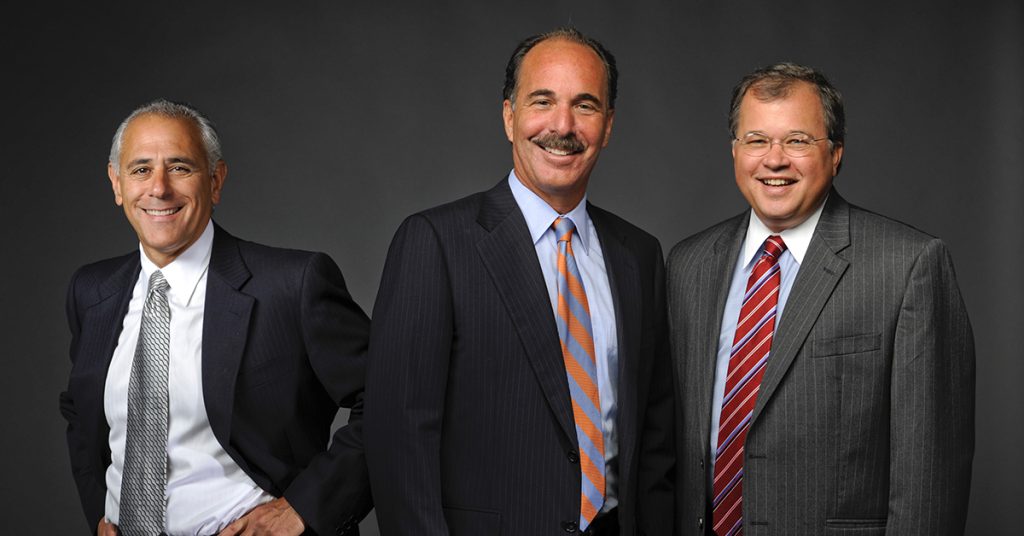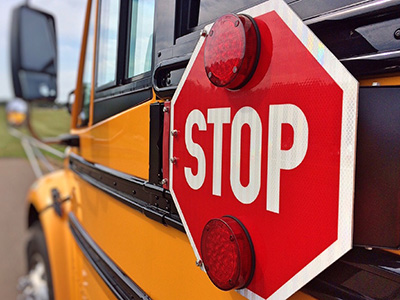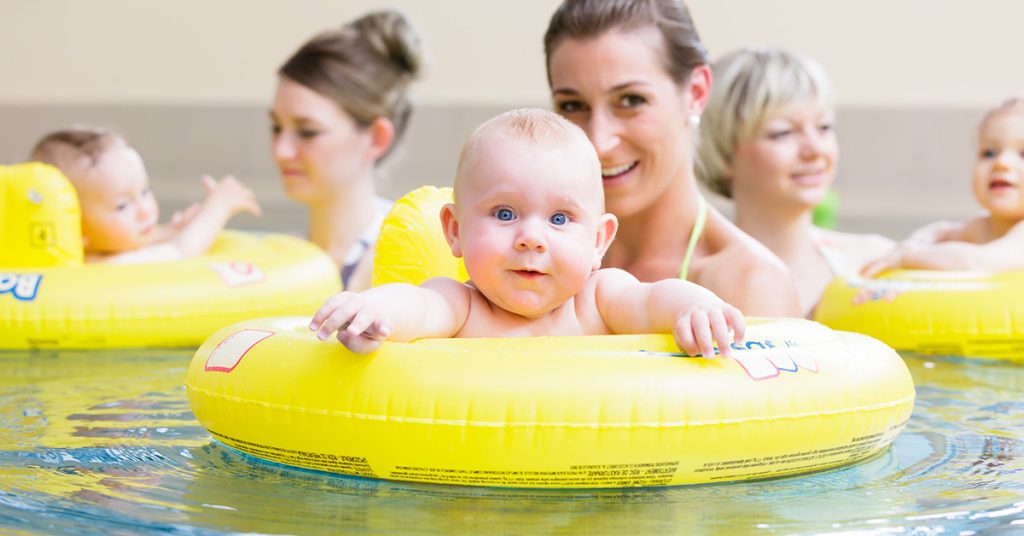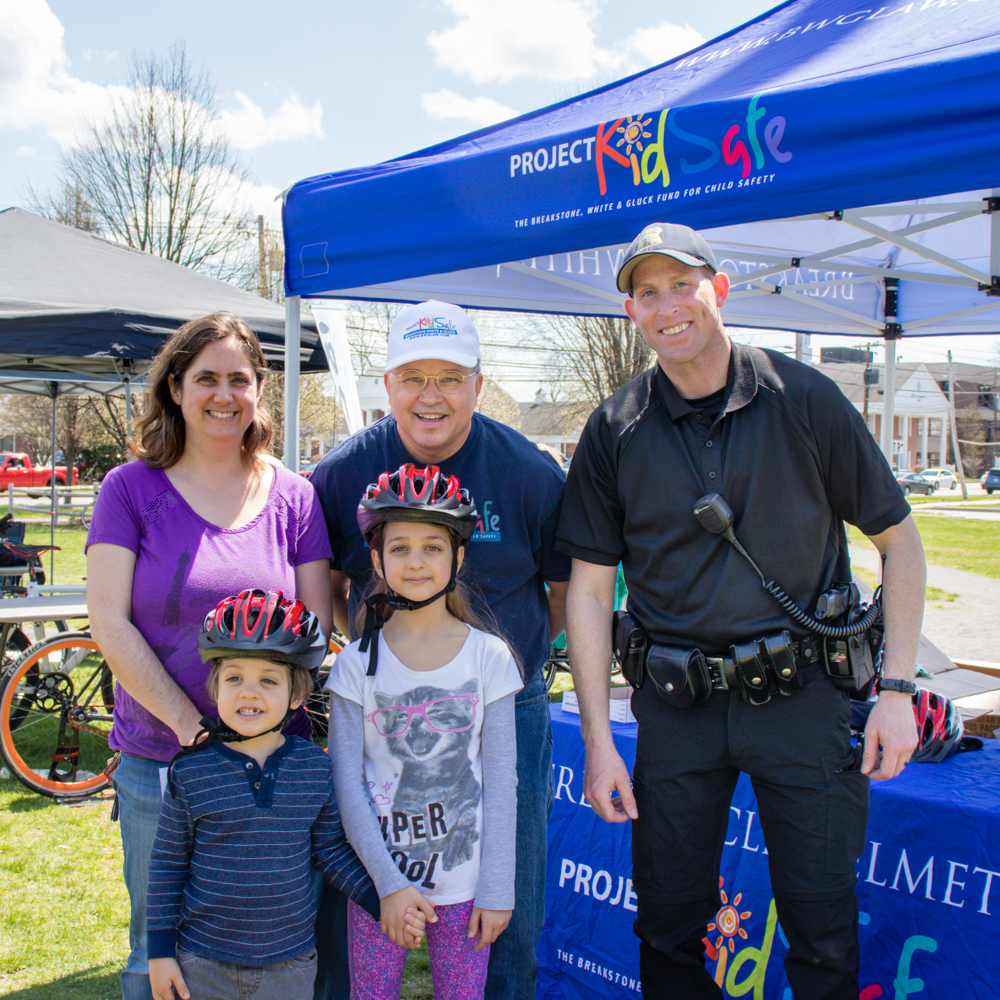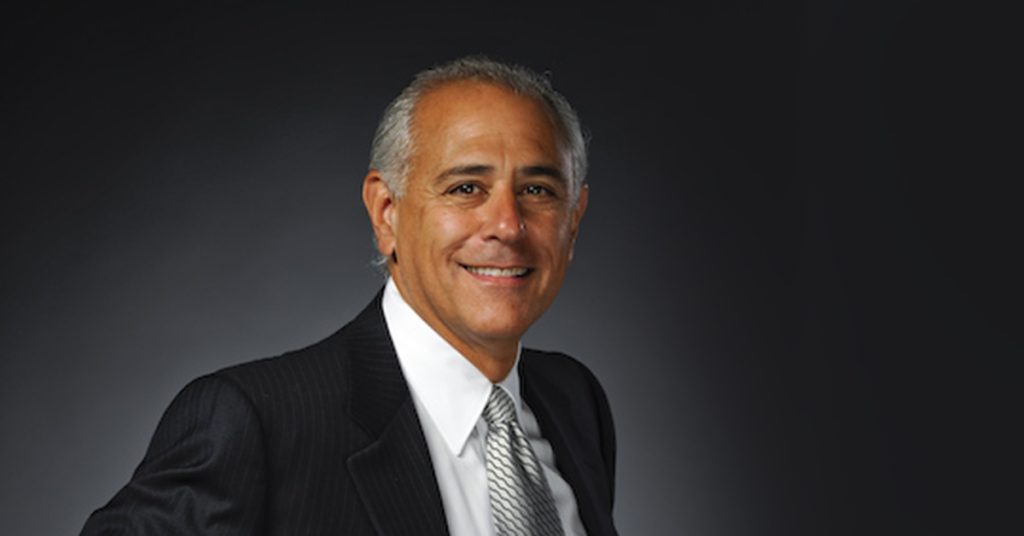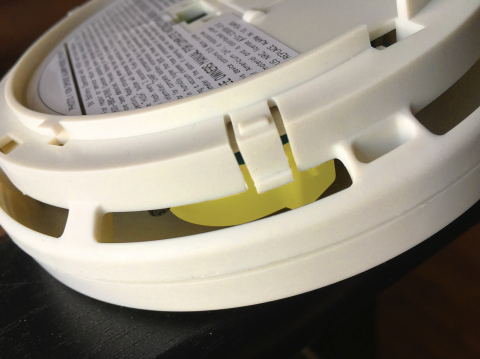Posts Tagged ‘Boston’
After Common Ground Building Collapses in Allston, Safety Reminders for Landlords and Property Owners
There were frightening pictures out of Allston on Sunday, November 4, 2018, as the Boston Fire Department responded to a report of a commercial building collapse. Firefighters found very dangerous conditions: the façade at 85 Harvard Avenue, a one-story commercial building, had fallen onto the sidewalk. The building houses Common Ground Bar and Grill, which sustained serious damage, and also other businesses.
Two people were injured, including a woman who was hit by concrete and suffered critical personal injuries outside the building. The Boston Globe reported she was with friends and they, along with others, fought to free her from the concrete. When the Boston Fire Department arrived, she was rescued and transported for medical treatment. Others inside the building were safely evacuated with assistance.
As the investigation begins, the collapse must serve as a reminder to landlords and building owners. Injuries from property defects – such as fires, slippery floors or snow and ice accumulations – are devastating for victims and families and are much more common than many people realize. But structural failures, especially in aging buildings, present extreme hazards as well.
Boston City Regulations for Building Owners and Landlords
Building owners and landlords have a responsibility to regularly inspect and maintain residential and commercial buildings. In older buildings with brick or stone facades, routing engineering analysis should be performed periodically.
In Boston, city regulations require inspection reports, but only for buildings over 70 feet tall. The regulation mandates that every exterior wall shall be inspected at least once every five years, and in the case of an unoccupied structure, inspection must be done at least once every year. Inspection reports must be completed by an architect or engineer, and filed with the city.
Inspections should not be limited to facades. Many buildings have aging iron work on balconies and exterior stairs and these can buckle under, leading to serious injuries.
"It was almost like an earthquake": Two people were injured, one critically, after the Allston building that houses the Common Ground restaurant and bar partially collapsed on Sunday afternoon. https://t.co/gh7VJMz0FP pic.twitter.com/qg3nQaEvFz
— The Boston Globe (@BostonGlobe) November 5, 2018
About Breakstone, White & Gluck – Representing Those Injured by Unsafe Property Conditions
At Breakstone, White & Gluck, our personal injury lawyers have over 100 years combined experience representing those who have been injured by the negligence and wrongdoing of others. Our attorneys have extensive experience investigating fires, porch collapses and unsafe buildings in the Boston area, then bringing claims on behalf of those injured.
If you have been injured because of unsafe property conditions, we urge you to learn your legal rights. For a free legal consultation, contact Breakstone, White & Gluck at 800-379-1244 or 617-723-7676 or use our contact form.
Expect Traffic Enforcement As Students Head Back to School in Massachusetts

With students back to school in Massachusetts, local police departments are stressing safety around school buses while stepping up enforcement of drivers who fail to stop for pedestrians in crosswalks.
If a traffic enforcement sting came to your community, how many drivers would be stopped and cited for unsafe driving? Would you be among them?
We ask these questions as students head back to school across Massachusetts, in communities from Boston and Cambridge to Plymouth and Brockton to Worcester and Springfield.
Police departments across the state have set up traffic enforcement over the past few weeks, focusing on drivers who are not stopping for pedestrians in crosswalks and school buses. A few of the communities include New Bedford, Attleboro and South Boston.
In South Boston, the surveillance followed the tragic death of a 2-year-old in a traffic crash. The child was being pushed in a stroller on the sidewalk, when a van and car collided. The van plowed onto the sidewalk, injuring and ultimately killing the young boy. A day after the crash, the Boston Police Department and Massachusetts State Police set up a traffic enforcement initiative focusing on crosswalk enforcement, speeding and other unsafe driving behaviors. Within a few days, officers had issued approximately 500 citations for traffic violations. This is a very telling number, one Massachusetts drivers can’t ignore.
Breakstone, White & Gluck is a Boston law firm which specializes in personal injury, medical malpractice and car accident cases. Our firm is committed to safety for children, giving away over 20,000 bicycle helmets to children in Massachusetts through our Project KidSafe campaign. With experience representing clients who have been injured in pedestrian crosswalk accidents and other traffic crashes, we offer these tips for safe driving:
Slow down at crosswalks. Students who walk to school may have a crossing guard help them across the street. Always slow down as you approach crossing guards and children. Make eye contact with the crossing guard and assume you should stop. The crossing guard will wave you through when it’s safe to go.
But even when there is no crossing guard, drivers must stop for pedestrians in the crosswalk when there is a “Walk” or green signal. Other times, drivers have a responsibility to yield the right of way by slowing or stopping for pedestrians in the crosswalk. This includes times when pedestrians are in the crosswalk on the same side as the driver and when pedestrians are approaching from the other half of the lane and within 10 feet. There is a $200 fine for crosswalk violations in Massachusetts.
The best thing to do is approach crosswalks slowly and stop if you see anyone even near the entrance of the crosswalk. If you can, make eye contact with them, then wave for them to go. Depending on whether other cars stop, they may not be able to immediately cross. You may need to be patient for a few moments.
M.G.L. c.89 § 11 is the law governing pedestrian rights in crosswalks in Massachusetts. Read more about the law.
Breakstone, White & Gluck Recognized by Best Lawyers in America© 2019
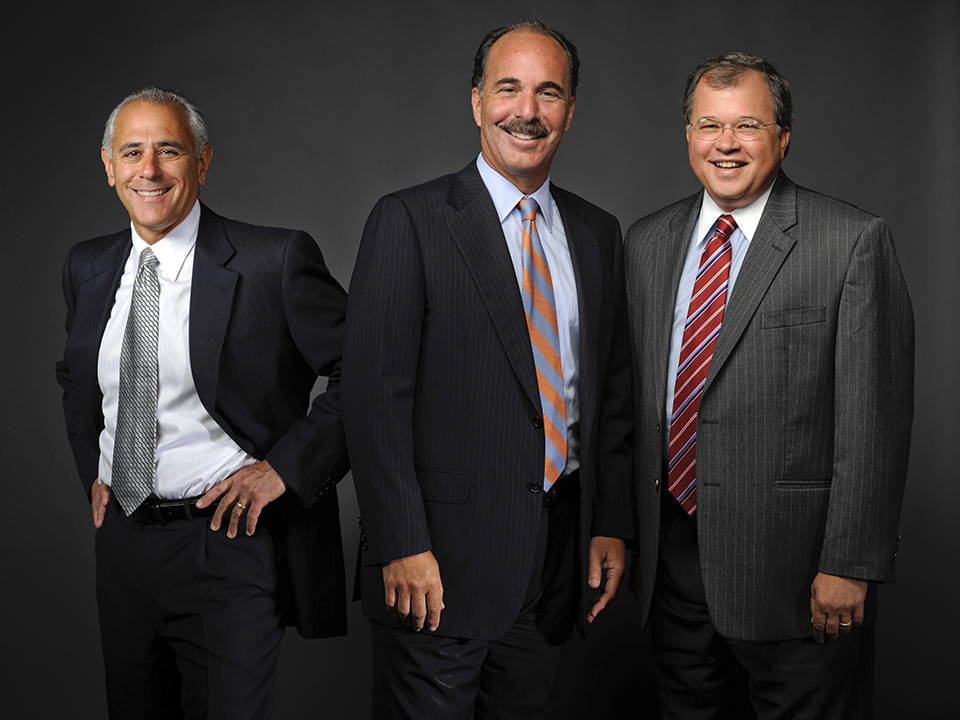
Left to right: Attorney Ronald E. Gluck, Attorney Marc L. Breakstone and Attorney David W. White have been recognized by Best Lawyers in America© 2019.
Breakstone, White & Gluck announces that our partners have been recognized in The Best Lawyers in America© 2019. Best Lawyers© is the oldest and most respected attorney ranking service in the world, providing a resource for those searching for legal services for more than 30 years. It ranks lawyers in partnership with U.S. News & World Report and other media partners.
Best Lawyers© compiles its annual list of attorneys based on a peer-review process. Nominations can be submitted online by members of the public, clients and other attorneys. But attorneys alone provide evaluations. Nearly 87,000 lawyers around the world are eligible to participate. For the ninth year, lawyers in the Boston region chose to rank Breakstone, White & Gluck. Our rankings:
Attorney Marc L. Breakstone was selected for inclusion in the fields of Medical Malpractice Law – Plaintiffs, Personal Injury Litigation – Plaintiffs and Professional Malpractice Law – Plaintiffs.
Attorney David W. White was selected for inclusion in the fields of Insurance Law, Personal Injury Litigation – Plaintiffs and Medical Malpractice Law – Plaintiffs.
Attorney Ronald E. Gluck was selected for inclusion in the field of Personal Injury Litigation – Plaintiffs.
About Breakstone, White & Gluck
Founded in 1992, Breakstone, White & Gluck has been widely recognized for our work representing clients in personal injury, medical malpractice and wrongful death cases. We bring more than 100 years combined experience to clients who have been injured by the negligence or wrongdoing of others. At the same time, we are committed to reducing injuries through our Project KidSafe campaign and by advocating for the rights of accident victims. Our attorneys have held leadership roles at statewide legal associations, including the Massachusetts Bar Association and the Massachusetts Academy of Trial Attorneys.
In addition to Best Lawyers©, our attorneys have been recognized on the Massachusetts Super Lawyers list, along with the Top 100 Massachusetts Super Lawyers and Top 100 New England Super Lawyers. Our partners have each received an AV rating from Martindale-Hubbell. This is the highest professional and ethical rating available for lawyers.
Personal Injury
Breakstone, White & Gluck represents those injured in all types of personal injury cases, with a commitment to provide our clients with aggressive representation and experienced, expert investigation. Our attorneys represent those injured in car accidents, commercial truck crashes, bicycle accidents and pedestrian accidents. Following bus and subway crashes, we have brought claims against the MBTA, winning at trial and appeal to the state’s highest court. We have specialized experience handling product liability, premises liability and construction accident cases. We work for the best financial result for our clients. When other attorneys may settle for unfair offers, we are committed to pursuing a just result at trial and appeal if necessary.
Medical Malpractice
Our lawyers are known across New England for our work standing up for clients who have been injured or killed by medical malpractice. Our attorneys offer extensive medical malpractice experience over 30 years, from surgical malpractice to paramedic malpractice, failure to diagnose and medication errors. We handled one of the most devastating cases of medical malpractice in the Boston area, representing the patient left behind when a surgeon at Mount Auburn Hospital left the operating room to cash a check. No one expects to step into a hospital and be injured as a result of medical negligence. When an accident happens, we know victims and their families struggle with heavy emotions and questions. Our attorneys are dedicated to fighting for the rights of medical malpractice victims.
Boston Personal Injury Lawyer – Free Legal Consultation
If you have been injured by wrongdoing or negligence, learn your rights. For a free legal consultation, contact Breakstone, White & Gluck at 800-379-1244 or 617-723-7676 or use our contact form.
Do Your Child’s Swim Lessons Actually Reduce the Risk of Drowning?

A media report explores whether swim lessons actually reduce the risk of injury. The American Academy of Pediatrics (AAP) says children should not start lessons until age 1. Previously, the AAP’s recommendation was not before age 4.
Swimming lessons have certainly changed over the years. Parents are signing children up earlier, as young as 6 months old, to get them used to the water. A recent WBUR report explored whether this is all for fun or if children in today’s swim lessons are actually learning enough to reduce their risk of drowning.
As a parent, ask your child’s swim instructor about their goals. Experts interviewed by WBUR said the goal should be water survival and broader pool safety skills.
“Aquatic safety is about multiple layers of redundancy, swim lessons just being one of those layers,” said a director from the YMCA in Greater Boston.
According to the report, another essential layer is strong supervision from parents, guardians and lifeguards. As personal injury lawyers in Boston, we want to add that a third layer is property owners. They must remain aware of their responsibility to properly maintain and secure pools, from pool fences to drains to diving boards.
A few insights from the report:
- Drowning is the leading cause of unintentional injury death among children in Massachusetts.
- There are very few studies which quantify the effectiveness of swim lessons.
- But one 2009 study has found children under 4 who take swim lessons have a significant advantage. The study, from the National Institute of Child Health and Human Development, found children who participated in swim lessons had an 88 percent reduced risk of drowning. The study examined 300 cases of unintentional drownings among children age 1 to 19 years old. Researchers only evaluated whether children participated in classes; they did not evaluate what skills children actually learned, so this is a future step.
- The American Academy for Pediatrics (AAP) had advised against swimming lessons for children under 4. After this study, the academy changed its recommendation in 2010, saying children ages 1 to 4 can develop water competence through swimming lessons. As for children under age 1, the AAP noted that “water-survival skills programs for infants may make compelling videos for the Internet, but no scientific study has yet demonstrated these classes are effective.”
In June, Olympian Bode Miller announced his family had lost his 19-month-old daughter in a swimming pool drowning in California. This tragedy has raised awareness about the risk of drownings, and the deep pain and devastation to families.
Drownings claim too many lives each year. Here in Massachusetts, a 2-year-old tragically drowned in his family’s swimming pool in Lynn earlier this month.
Nationwide, 463 children age 4 or younger drowned in 2016, according to the Centers for Disease Control and Prevention. This was an increase over both 2015 and 2016. This week, U.S. Sen. Chuck Schumer (D-NY) spoke about the rise in swimming pool drownings among young children and called for the federal government to investigate further.
What Parents Can Take From This Report
Asking Permission. Swim instructors should teach children to ask for permission before they get into the pool. They should always ask for permission, from parents, lifeguards or swimming instructors. Reinforce this lesson.
Proper Supervision. Parents should commit to watching children closely in the pool, even if the child is participating in a swim lesson. Carry your cell phone but set it aside. It is a scary thought, but in the time you take to send a text, your child could drown, even if they are a strong swimmer for their age. A child can drown quickly and silently under water.
When visiting family members and friends, consider leaving young children at home (with a trusted adult) or skipping the visit altogether.
Online Research. Research the swimming pool before you sign your child up for lessons. Look at the website to see the credentials of the pool owner and staff. Read online reviews. Also ask your friends and neighbors for feedback on the staff and what children are learning.
Another resource is the local town or city hall. Ask the health department about inspections and complaints which have been investigated. You will learn how well the pool is maintained and if the swimming pool owner responds promptly.
In-Person Research. Swimming classes can be busy, with a new round of children and parents starting classes every half hour. Still, take time to ask the swim instructor about their background and as we said, to explain their goals for the class.
About Breakstone, White & Gluck
The Boston personal injury lawyers of Breakstone, White & Gluck represent children and families who have suffered pool drownings in Massachusetts. If you are parent, we urge you to carefully plan and supervise your child at the pool. If you are a pool owner, you have a responsibility to properly secure your pool with a fence and make sure your children and others are protected from potential injury.
Breakstone, White & Gluck represents individuals in all types of personal injury cases in Massachusetts, including car accidents, bicycle accidents, pedestrian injuries, medical malpractice and premises liability cases. If you have been injured, contact Breakstone, White & Gluck for a free legal consultation at 800-379-1244 or 617-723-7676. You can also send us a message using our contact form.
Cyclists: Are You Lighting Up the Road?

Cyclist on vacation in Massachusetts wearing a helmet but not using bike lights
Fireworks are lighting up spectacular skies this week. All the color makes us think about bike lights. If you are a cyclist, are you lighting up the road this summer? Are you using bike lights and wearing bright colors to stay visible to drivers?
Whether you are commuting to work or enjoying a leisurely ride on vacation, bike lights are essential to preventing bicycle accidents. And many cyclists don’t realize this, but bike lights are required by law in Massachusetts.
We encourage you to buy yourself bike lights as soon as possible. If you already have lights, please check to make sure they are working properly. Bicycle accidents have risen in the U.S., reaching a 25-year high in 2016, according to the Insurance Institute for Highway Safety. The majority of accidents happened between 6 and 9 p.m. The second peak time was 9 p.m. to midnight.
Massachusetts Law
Under Massachusetts law, cyclists are required to use bike lights if they ride after dark. The law is M.G.L c.85 § 11B.
Bicycles must be equipped with a white light facing forward and a red light facing backward. These lights must be in use from thirty minutes after sunset until thirty minutes before sunrise. The white light must be visible from at least five hundred feet away. The red light on the back must be visible for at least six hundred feet. Reflectors on both pedals facing front and back are also required. If a cyclist has no reflectors, they can wear reflective material around their ankles.
Plan
If you have your own bike, buy your own lights now. You can buy them online or at a local store for a few dollars. For everyone else, if there is a chance you may ride, purchase some small bike lights. They pack neatly in your work bag or travel luggage.
There are many different types of lights available. When you purchase lights, take note of the size, battery type and battery life and if they are designed for day or night use. Remember that lights are required for the front and back of your bike. Attaching lights to your helmet or other parts of your bike are helpful for safety, but are considered extra under the law. Here is an article about bike lights to help you get started.
There is good news for Boston commuters. There are built-in lights on the rental Blue Bikes in Boston, Cambridge, Somerville and Brookline.
Stay Visible
Don’t stop at bike lights. Purchase a neon reflective safety vest, tape and any other clothing to help drivers see you. Amazon is full of ideas.
Know Your Bike Route
Before you ride at night, plan your route. Choose areas which are well lit and have clearly marked bike lanes. Travel the route during the day before you go at night.
Stay Informed
Monitor social media accounts for local police departments and bike committees which serve the area. Sign up for the newsletters offered by bike committees. Cyclists write these newsletters specifically for other cyclists and their experience is invaluable, especially when riding and making decisions at night.
Tips for Keeping a Safe Swimming Pool in Massachusetts This Summer
 Your swimming pool is your backyard oasis, a fun and refreshing place to beat the heat. To keep children and others safe this summer, we urge Massachusetts property owners to secure and properly maintain pools at all times. Take these steps now to help prevent injuries and drownings:
Your swimming pool is your backyard oasis, a fun and refreshing place to beat the heat. To keep children and others safe this summer, we urge Massachusetts property owners to secure and properly maintain pools at all times. Take these steps now to help prevent injuries and drownings:
Secure your pool. In Massachusetts, pool owners are required to have fencing which stands at least 48 inches tall. Openings in the fence must be less than 4 inches in diameter. All doors to pool areas must have self-latching and self-closing devices. Homes with doors which open into the pool area must use pool alarms.
Walk around your pool fence now to look for areas which have been damaged. Make repairs right away.
Plan your pool barriers. Slow children down at every opportunity. Safety covers for pools and hot tubs are physical barriers and visual reminders which help keep children out. Remove pool ladders when you leave the pool. Lock them in pool sheds or other secured areas.
You can also place strategic barriers between your house and the pool or your neighborhood and your pool. For example, you could plant tall shrubs to restrict the line of sight from the street.
Landlines, not cell phones. Bring cell phones to the pool just in case. But set them aside so you don’t become distracted by them. Instead, rely on your portable landline phone. This is the best way to call 911. In Massachusetts, 911 calls made on cell phones are typically routed to State Police, then to a local police department or emergency response. You have to assume State Police do not know your location information until you tell them and this may delay response time.
Pool alarms. Purchase a pool alarm that will sound if anyone enters the pool area. There are many different types of alarms, including those which are triggered by movement in the water and others with wristbands you can put on your child. Do your research online and visit your local pool store for ideas.
Supervise children and teach them to swim. If you have children, teach them to swim as soon as you can. Sign them up for swim lessons each year so they continue to grow stronger. Sign yourself up for CPR and review the steps each summer.
Swim with young children, keeping them within your reach at all times. Supervise your children in the pool. If you have to leave the pool area, wait to leave together. No one else will ever watch your children with as much focus as you do.
Guests at your pool and your home. Limit the number of guests you invite to your pool and your home. If you are swimming with guests, your goal is to eliminate as many distractions as possible so you can watch your children and others swim. If you invite children, invite parents too. Watch children closely before and after they enter or exit the pool area.
You always have to be on guard if you invite people over, even if you are not inviting them to use the pool. If a young child was separated from their parents for whatever reason, could that child make it past your pool fence?
Set up an age-appropriate pool area. As children grow, each year is different. Try to delay some of the steps when it comes to the pool. For instance, you can remove your diving board so children will not be tempted. Many pool owners, even those without children, have chosen to retire diving boards because of the risk for serious head injuries if someone slips or hits their head.
Hold off on taking your child into the deep end until they are strong enough. Do not let anyone bring toys with small strings, cords or small pieces into the pool area. Remove rafts which are floating unattended so you can see every inch of the pool.
We are not saying don’t enjoy your pool. Just take it one step at a time and evaluate how you keep and secure the pool area on a regular basis.
Flotation devices. Invest in pool life jackets for your children. Make sure they are “Coast Guard approved.” Check online for reviews and product recalls on the Consumer Product Safety Commission website.
Preventing Drownings and Injuries
As a pool owner, you have a responsibility to keep your pool safe and clear from hazards to guests and children. If someone is injured in your pool due to your negligence, you could be held liable for their injuries.
- Drowning is the second leading cause of unintentional injury death for children age 1-4 (Centers for Disease Control and Prevention (CDC).
- Children under age 5 and those 15-24 have the highest rates of drowning (CDC).
- In 2014, there were 346 fatal drownings of children under 5 years old in the U.S., according to Pool Safely.
Young children are the most vulnerable around swimming pools. But they are not the only ones at risk around water. Summer comes and many of us let our guard down. Drownings can result when someone is swimming alone or without a lifeguard. According to the Centers for Disease Control and Prevention, about 4,000 people die each year by drowning. Adults can reduce the risk for injury by swimming in pairs and avoiding alcohol consumption when they swim. Teenagers should only swim with supervision.
The bottom line is pools are a responsibility. Drownings are 100 percent preventable. We must be vigilant all summer long to prevent drownings and it begins with keeping a safe and secure pool.
About Breakstone, White & Gluck
The Boston personal injury lawyers at Breakstone, White & Gluck have over 100 years combined experience representing those who have been injured in premises liability and swimming pool accidents. If you have been injured, learn your legal rights. For a free consultation, contact our attorneys at 800-379-1244 or 617-723-7676 or use our contact form.
Breakstone, White & Gluck Makes Bike Month Donations in Framingham and Clinton
As National Bike Month ends, we finish a busy May for our Project KidSafe campaign. Six years have passed since we began our campaign and each year, Bike Month and Bay State Bike Week, get better and engage more people in Massachusetts. A few of our donations:
Framingham Earth Day. This event was held on April 28th. But it’s always the unofficial start of Bike Month for us. This was our fifth year participating in Framingham Earth Day and donating bicycle helmets from our Project KidSafe campaign to the kids. Attorney David W. White and Framingham Police Officer Garrett Coffin fit 150 helmets over the first two hours of the event. The rain stayed away so this year, we got to enjoy being out on the Framingham Center Common. Dozens of vendors came out, including several organizations for cyclists. We have to add: this is always a worthwhile event for cyclists. Friends of the Natick Trails, the Natick Cochituate Rail Trail and the Friends of the Bruce Freeman Rail Trail participated, giving cyclists a way to learn about the latest developments before riding.
We want to offer a special thanks to Officer Coffin of the Framingham Police Department. Garrett comes out each year. He is patient, good with people and has to be one of the best bicycle helmet fitters in Massachusetts.




Clinton Community Safety Rodeo. On May 5th, we were pleased to donate bicycle helmets at the Community Safety Rode in Clinton. This is the second year the town of Clinton Park & Recreation Department has organized the event. We are told last year, many children showed up with bikes, but were unable to participate because they didn’t have helmets. In Massachusetts, it’s not just good sense to wear a helmet. It’s required under the law for children (up to age 16). And as we said, it is important and good sense for all cyclists.
Attorney Ronald Gluck Interviewed by Boston Magazine, Says Video Footage Shows Truck Driver Was Responsible for Dr. Anita Kurmann’s Death
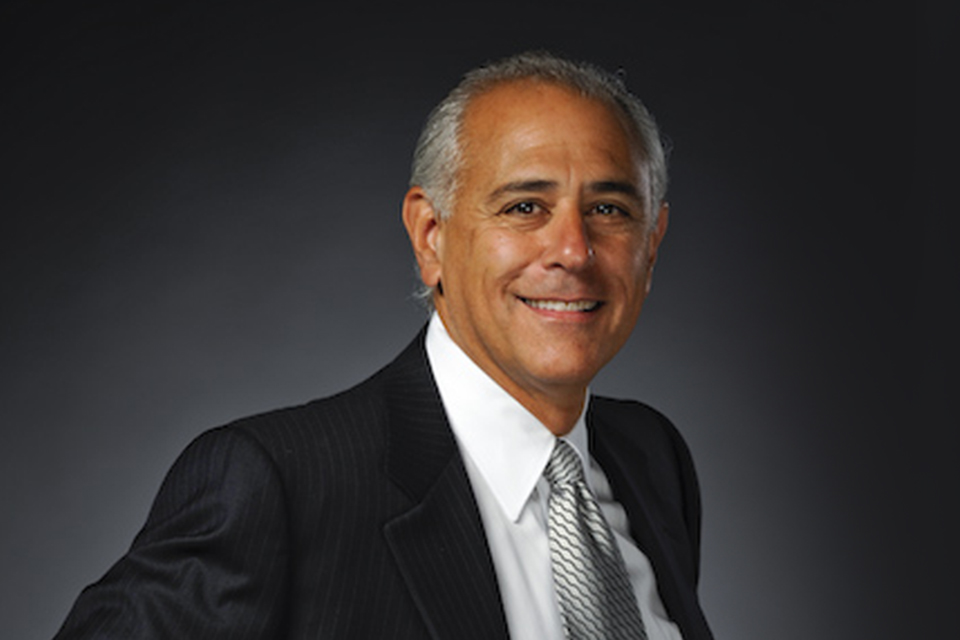
Attorney Ronald E. Gluck was interviewed by Boston Magazine about the truck crash that killed his client, the late Dr. Anita Kurmann. Gluck said he had to wait 20 months after the truck’s collision with the cyclist to obtain the video surveillance from the Boston Police Department. While the Boston Police Department found the truck driver was not responsible, Gluck said his investigation found the truck driver caused his client’s death. Gluck negotiated a financial settlement with the truck driver and his insurance company on behalf of Kurmann’s estate in June 2017.
Attorney Ronald E. Gluck is speaking about the video footage of the 2015 truck crash that killed his client, Dr. Anita Kurmann.
Twenty months after the fatality occurred, the Boston Police Department completed its investigation and concluded that the truck driver was not responsible for the cyclist’s death. The video footage, which came from a traffic camera at the intersection where the tragedy occurred, was in the hands of the police the day the incident occurred. Yet, the Kurmann family and their attorney had to wait twenty months to see the video and to obtain any witness information from the police department, Gluck said. Multiple subpoenas sent to the police were met with a refusal to produce the information until the police concluded it investigation.
“One of the most difficult aspects of the case was that Anita’s family had to wait twenty months to obtain the video footage showing how the incident occurred…Families should have the right to know the facts in these situations,” he said.
Gluck said his own investigation found that the truck driver was responsible for Kurmann’s death.
“Once we were able to obtain a copy of the video and have it analyzed by a highly qualified expert, that expert provided compelling evidence that the conclusion reached by the Boston Police Department was wrong,” Gluck said.
Within 2 months of obtaining the video and witness accounts of the fatality, Gluck was able to demonstrate that the tragedy was caused by the truck driver’s negligence and negotiated a financial settlement with the truck driver and his insurance company on behalf of Kurmann’s estate. The settlement was reached in June 2017.
Gluck added, “I have great respect for the Boston Police Department, but we believe they got it wrong in this case. The truck driver caused the fatality, ending the life of a talented surgeon and devoted family member.”
MassBike also conducted an investigation into the case and concluded that the death resulted from the truck driver’s negligence.
Dr. Kurmann, a 38-year-old endocrine surgeon from Switzerland, was a leading research scientist at Beth Israel Deaconess Medical Center and Boston University School of Medicine. She was hit on an August morning on the corner of Massachusetts Avenue and Beacon Street. The truck driver kept going, but was located out of state later that day.
Gluck has represented plaintiffs in personal injury cases for more than 35 years. He specializes in cases involving catastrophic injury and death resulting from trucking and motor vehicle collisions, bicycle and motorcycle accidents and pedestrian injuries.
Gluck was interviewed in Boston Magazine’s May 2018 issue, for an article called “What Happens When You Kill a Bicyclist?”
Construction Workers are Dying in Boston’s Building Boom
Boston is in the middle of a mighty building boom, with no sign of a slowdown ahead. As new condos, college dorms and office buildings go up, the companies making a financial profit must protect construction workers.
Workers are not always protected. As ribbons are cut on new buildings, the number of workers killed on the job stands at a 10-year high in Massachusetts, according to MassCOSH. During the past month, construction accidents have injured two workers and killed one in the Boston area.
A 56-year-old Seekonk man was found dead last week at the Wynn Boston Harbor resort in Everett. According to WBZ, the worker was in the cab of an excavator, taking apart a trench box when he was struck. The cause of the impact was not reported and the accident remains under investigation by the Occupational Safety and Health Administration (OSHA). The man worked for J. Derenzo Companies of Brockton. The company is a subcontractor of Suffolk Construction of Boston, which is building the casino.
The Boston Globe reported that OSHA has conducted previous inspections at the Wynn construction site. One involved an employee who was hit by an excavator bucket. Another worker was injured when he fell down a shaft. A third employee was injured by a scissor lift.
After Kidde Recall, Consumers Are Urged to Check Smoke Alarms
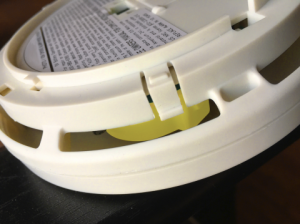
Kidde recalled nearly a half million smoke alarms which may have a dangerous yellow cap left inside. (Recall date: March 21, 2018; Photo: CPSC website)
Please check your smoke alarms when you get home. Kidde has recalled nearly half a million smoke alarms, urging consumers to check devices for yellow caps potentially left on during the manufacturing process. According to the company’s recall notice, the cap would be on one of two sensors inside the smoke detector, compromising the device. Consumers have to do this inspection carefully. You will be looking for the yellow cap through the opening on the side of the device, as shown in the photo. Be careful not to open the smoke alarm or take it apart.
Because Kidde is one of the largest manufacturers, every consumer should check their smoke alarm. If you have a Kidde device, you will need to take it off the wall or ceiling to check the date code on the back. The recalled smoke alarms were dated September 10, 2016 through October 13, 2017. They were sold through January 2018 at Home Depot, Walmart and other retailers. They were manufactured in China, by Fyrnetics Limited, of Hong Kong.
Recall Numbers:
PI9010 (DC/battery powered)
Date codes: Sept. 10, 2016 through Oct. 13, 2017
PI2010 (AC/hardwired)
Date codes: Sept. 10, 2016 through Oct. 13, 2017
Steps for Inspecting Your Smoke Alarm
The Consumer Product Safety Commission recall notice warns consumers not to open the device. Take it off the ceiling or wall, then inspect the alarm through the opening on the side of the device. If you see a yellow cap, you should immediately contact Kidde toll-free at 833-551-7739 for a free replacement. We encourage you to read the recall notice for hours of operation and other information.
Kidde issued the product recall after the yellow cap was found on a smoke alarm which was about to be installed in a consumer’s home. No injuries or incidents reported. Kidde recalled 452,000 smoke alarms sold in the United States and about 40,000 in Canada.
Importance of Smoke Alarms
Smoke alarms are fundamental to safety. Massachusetts has strict laws requiring installation in residential and commercial property. Yet 3 out of 5 home fire deaths in the U.S. are caused by smoke alarm failures, according to the National Fire Protection Association. Nearly 40 percent of these homes had no smoke alarms and about 20 percent had non-working smoke alarms.
Do everything you can to protect your family. Commit to replace the batteries when you set the clocks back or ahead for Daylight Saving Time. Regularly test your smoke alarm batteries every month.
Please share this recall with family members and friends. Offer to help anyone who needs it. In addition to the elderly, check in with college students or adult children who are living in apartments. Also check in with any family members who are new homeowners, still getting to know their appliances.
About Breakstone, White & Gluck
At Breakstone, White & Gluck, our lawyers specialize in personal injury, medical malpractice and product liability cases. Our lawyers are committed to fighting for justice for those who have been seriously injured or killed by the negligence and wrongdoing of others. If you have been injured, learn your rights. For a free consultation, contact our attorneys at 800-379-1244 or use our contact form.


